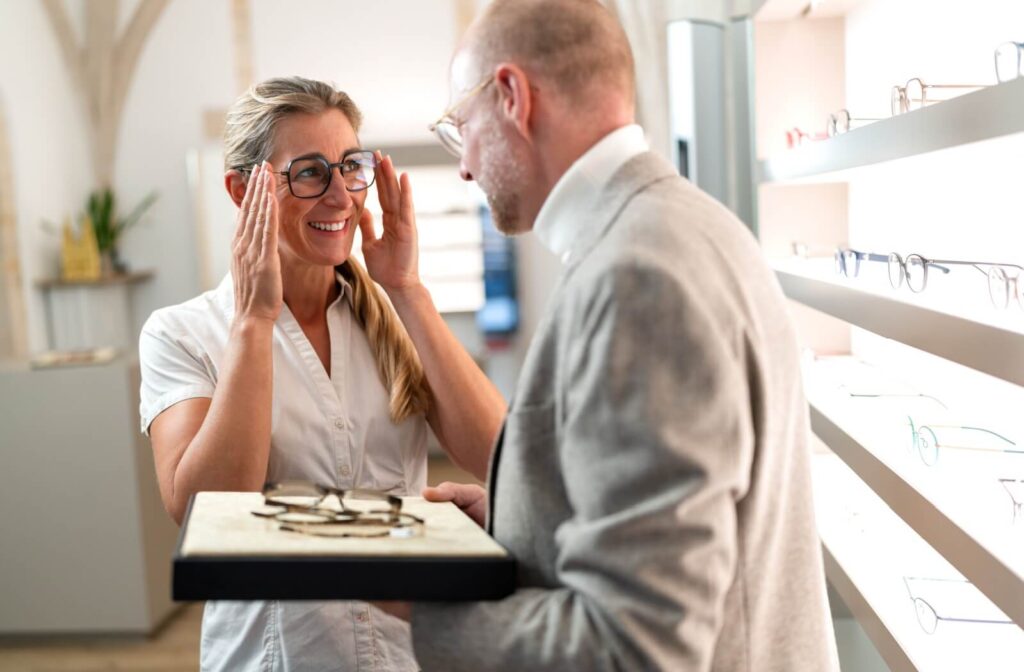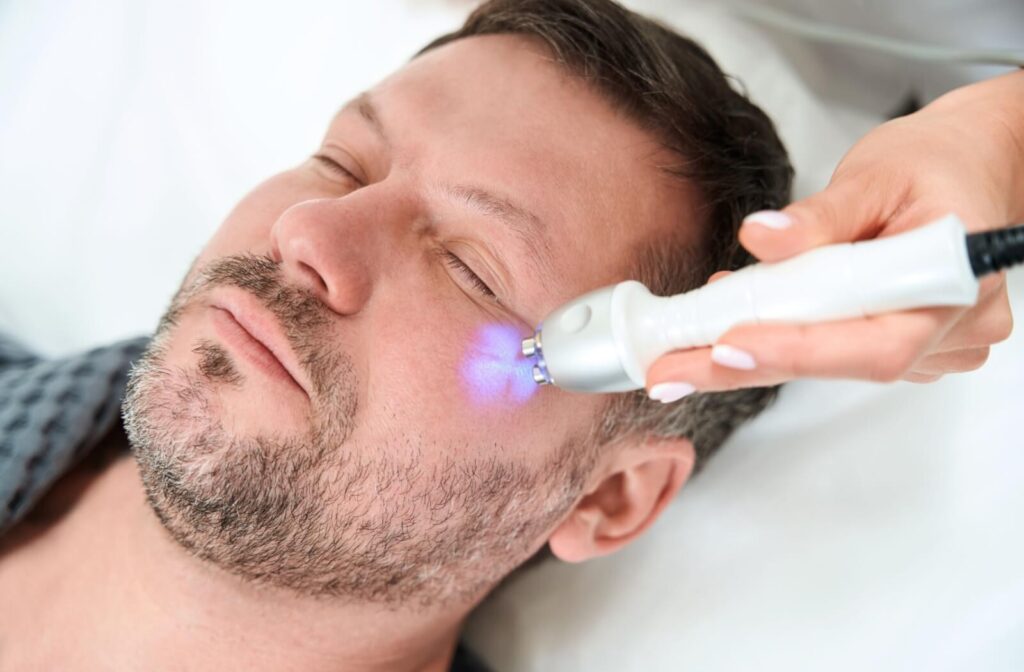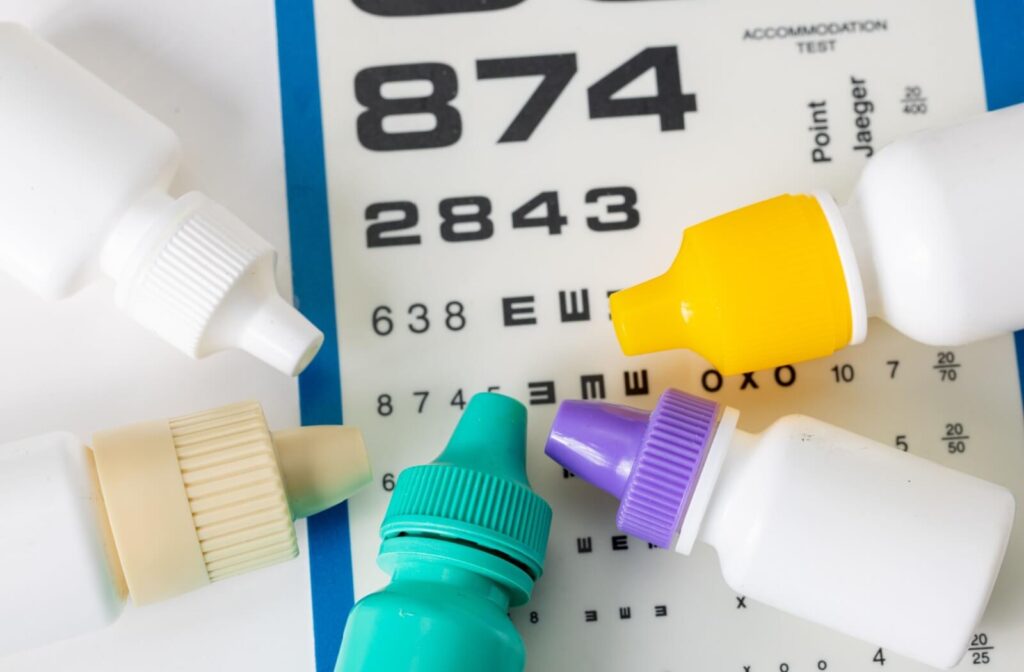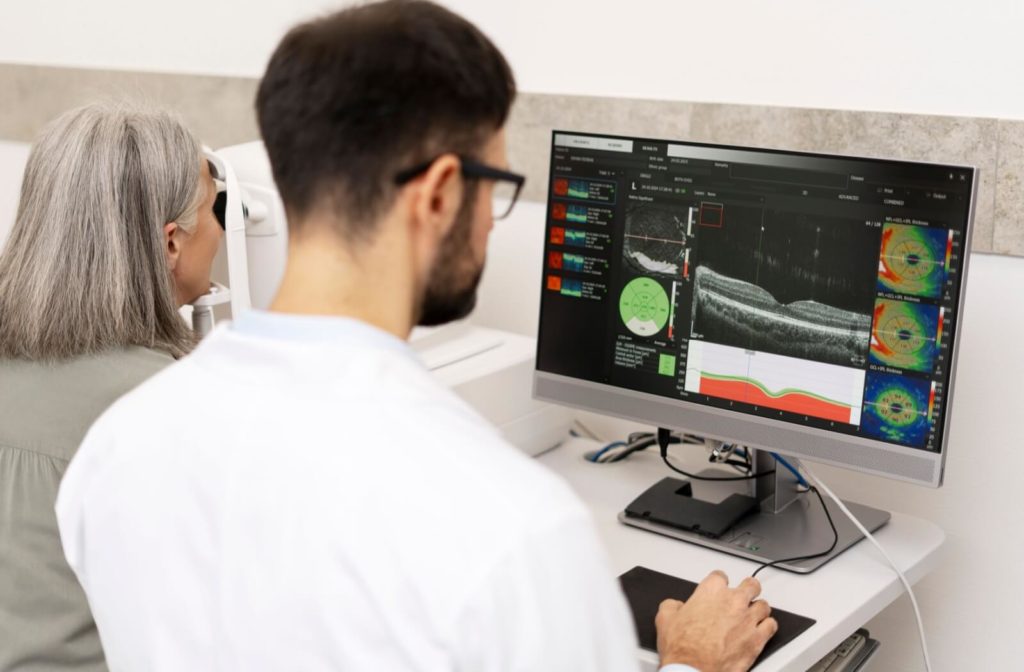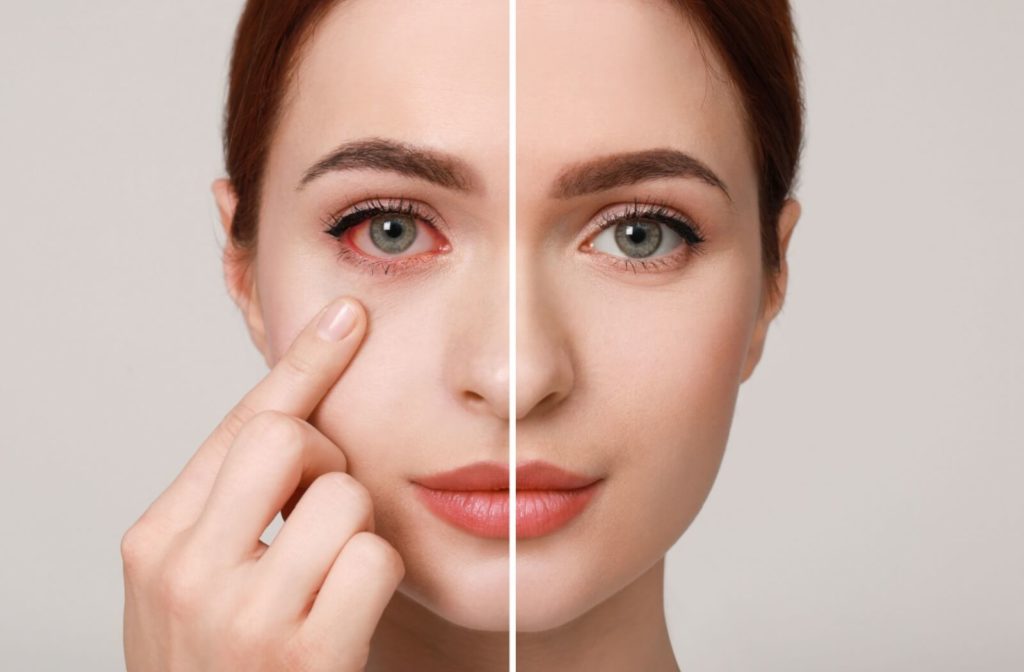Because of the close proximity of the eyes and sinuses, it’s natural to wonder if a sinus infection could cause pink eye.
While classic viral pink eye (most often caused by adenoviruses) is typically not related to sinus infections, certain bacterial or upper respiratory infections can affect both areas and lead to overlapping symptoms.
[…]
Can Pink Eye Be Caused By Sinus Infection?



